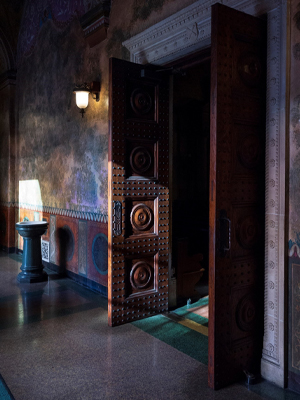Scripture:
1 Samuel 8:4-7, 10-22a
Mark 2:1-12
Reflection:
The Hope in Miracles

Today’s reading talks specifically about the authority of kings in the Old Testament and Jesus’s authority in the New Testament. It has always been a topic that interests me, specifically, the miracles of the New Testament. In the early years of the Church, these acts, which we now call miracles, were known mainly as signs. Today we refer to them as both (signs and miracles), but over the years, we (the Church) have focused on the actual miracle, in this case, the cure of the paralytic. So there is a difference in these two words and even how we interpret them.
In other parts of scripture, Jesus tells us that in order to believe, you have to see.
John: 4:48 Jesus, therefore, said to him, “Unless you see signs and wonders you will not believe.”
So, Jesus understood that a sign (or miracle) needed to be performed to have others understand He was here on a mission and that He held the authority to speak and act on God’s behalf. It was an encouragement to have the scribes, apostles, and other witnesses to see that Jesus was empowered to act, speak and operate with authority. Later, it became apparent (after many other signs and miracles) that Jesus was the Messiah, to at least some of His followers prior to the Resurrection; and many others afterward.
So, in many respects, we can consider the sign, the indicator that the authority in which Jesus was operating was more important than the actual miracle itself. Why is that? Well, if we concentrate on the outcome of the miracle, to a certain extent, we are missing the point. The point here is that God is with us, amongst us, operating at all times, but we continually require proof positive. The scribes are asking this question in the Gospel today, how often do we ask ourselves this very question?
The acceptance of God in our everyday lives this there for us all to see. We don’t need a miracle or something supernatural (to us) to prove it. Jesus demonstrated His authority through signs and miracles, we have the evidence in sacred scripture, but it is also closer to home if we look and listen carefully.
Perhaps today, we can examine the times when God has spoken to us in signs in our own lives. In our creation, our vocations, those around us, and the Pentecostal gifts. Hope is one of these virtues which provides this continued expectation; God and grace are not around the corner but are ever-present. Hope is always on if only we can recognize His presence.
Michael Cunningham, OFS, is the Director and CEO of Mater Dolorosa Passionist Retreat Center in Sierra Madre, California.
